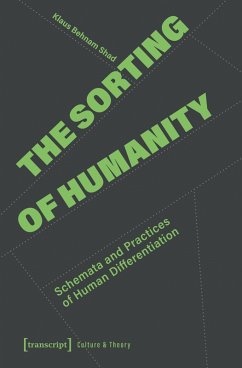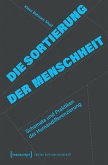Human differentiation encompasses human classification and categorization processes that we encounter on a daily basis. Klaus Behnam Shad offers a new framework of human differentiation that emphasizes social complexity and intersectionality. Uniquely integrating systems theory with political, psychological, and biological anthropology, this systemic-anthropological approach firmly rejects culturalizing, moralizing, and ideologizing stances that claim a supposed superiority. This provides valuable insights into group-based differentiation processes that would otherwise remain inscrutable.
Dieser Download kann aus rechtlichen Gründen nur mit Rechnungsadresse in A, D ausgeliefert werden.









